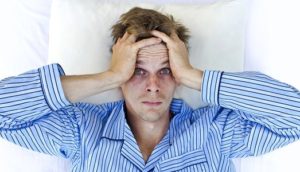 Whether you just have difficulty getting to sleep at night, burn the candle at both ends or you are suffering from insomnia – there is a link between sleep and mental health issues. People who deal with depression often report that they struggle to sleep, and a lack of sleep can also increase your risk of depression. The two are so intertwined that it’s difficult to know which one triggered which.
Whether you just have difficulty getting to sleep at night, burn the candle at both ends or you are suffering from insomnia – there is a link between sleep and mental health issues. People who deal with depression often report that they struggle to sleep, and a lack of sleep can also increase your risk of depression. The two are so intertwined that it’s difficult to know which one triggered which.
When you fall asleep at night your brain goes into rest and repair mode. It processes everything that you have learned and experienced throughout the day, stores your memories, and makes any necessary repairs. Thanks to continuing research over the decades what we now know is that a lack of sleep is generally the trigger for depression.
It makes sense. Think about how you feel during the day after you’ve had a night of limited or restless sleep. You feel as though you’re teetering on the brink of an episode of rage, you snap at people, you feel over-emotional, you struggle to focus, your performance dips, and your memory constantly fails you. Research suggests us that a bad night’s sleep makes it difficult to regulate your emotions, just like it shows that sleeplessness can be a predictor of depression, as sleeping difficulties is one criteria for the diagnosis of depression.
Why Poor Sleep Leads To Distress
There are many reasons in addition to those mentioned above. Another issue is our likelihood to back out of plans when we are overly tired. We cancel the gym, we call off dinner with friends, all we want is to relax on the couch. That sounds fine, right? The problem with this is that these activities are the exact type of events that can keep depression at bay.
We may be able to understand the link better when we look at what happens to our brains when we miss out on sleep. Our amygdala controls anxiety and emotion and a lack of sleep leaves this region of the brain weak, leaving people more susceptible to both psychological and emotional distress. If you don’t have full control over your emotions, it is natural to see them run the gamut as you go through a typical day when you’re running on little to no sleep.
The Need To Improve Sleep
It may be that we have a genetic predisposition that makes us more likely to experience sleep difficulties, which leaves us more vulnerable to distress and depression. There is also evidence that depression sufferers experience inflammation in their body, and sleep is when your body recovers, showing further links between the two.
What can you do to control it? Improve your sleep, of course. There are a variety of ways you can do that, the first being keeping a tight schedule. Make sure you get up at the same time every day, whether you have work or not, and try to go to bed at the same time.
Create a healthy routine before bed that will prepare your body for sleep- habits like meditation are helpful. If you can’t sleep, don’t toss and turn – get out of bed and read a book quietly until you start to feel sleepy. Eat well, exercise regularly, and limit your caffeine intake (particularly after 2 pm).
If you’re having troubles and would like professional advice, get in touch with Dr. Danielle Forshee, Psy.D., today.
